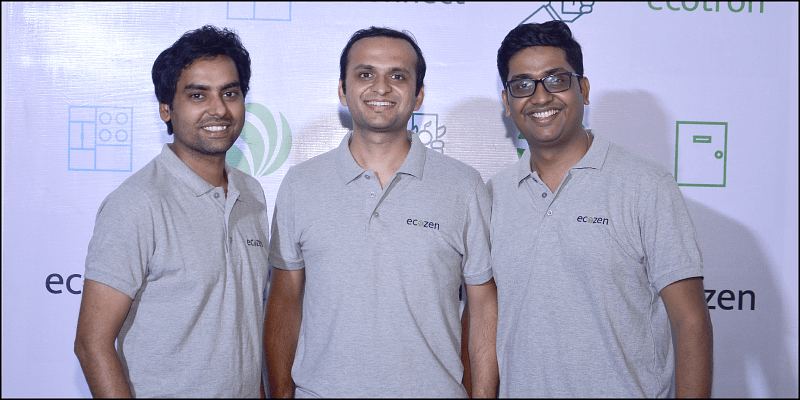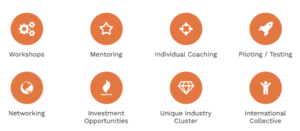The Indian startup ecosystem has been behind several innovations that have catalysed the agricultural sector by strengthening the pre-harvest value chain and helped farmers in boosting the farm output and their income.
In 2010, IIT Kharagpur alumni, Devendra Gupta, Prateek Singhal, and Vivek Pandey founded Ecozen with similar intentions as they sought to solve energy-related problems in rural areas with decentralised solar-powered solutions.
Soon, they built solar-powered pumps that were powered by the Internet of Things (IoT). While scaling their production, they realised that farmers’ incomes were not increasing, and it could be due to the broken supply chains in the post-harvest stages.
“While the production levels (of the fields) were getting stabilised, the farmers were not able to get a great value for their produce. A lot of produce gets wasted because everyone grows the same crops, and they can only market it within a 100-300 km radius as these items perish easily,” said Prateek.
Unlocking value for farmers at the post-harvest stage
According to their estimates, perishables such as litchi, leafy vegetables, flowers, and strawberries, among others, account for almost 90 out of the total of 350 million MT of fresh produce grown in India annually, and face losses in excess of Rs 1 trillion every year.
“So we thought: if we can build a sustainable and decentralised cooling solution for farmers, and create market linkages beyond their pre-existing radius, they could get a better value for it.” To that end, the founders came up with the idea of Ecofrost, which is a portable pre-cooling and staging solution that allows farmers to pre-cool their perishable produce at the farm site itself, extending its shelf life significantly.
The Pune-based startup works with 72,000+ farmers and has installed over 50,000+ irrigation systems and 300+ cooling units all across India.
Turning farmers into entrepreneurs during the pandemic:
However, the onset of the COVID-19 pandemic and the subsequent lockdowns ended up changing the trajectory of Ecozen’s efforts. “The lockdowns left many farmers high and dry as it was difficult for the farmers to ship the produce between states, and the mandis were not operational at the time,” recounted Devenda. And so apart from providing Ecofrost storage solutions to keep produce for longer, Ecozen also helped them with market linkages. “We helped farmers in Shimla and Bihar by shipping their produce to Mumbai, Delhi Bengaluru and other parts of the country,” he said, adding that the team managed to transport 100 tonnes of produce through market linkages in April.
Devendra also explained how the entire agreement of establishing market linkages was benefiting farmers by improving their earnings. “Unlike the companies engaging in the buying and selling of commodities and taking the risk of those commodities, we have built a model where we provide farmers with market access and upside on the sale of produce and pass the responsibility of providing the right product specification to them. Given the increase in market reach, better quality of the produce, this year the Mahabaleshwar strawberry farmers found that they earned 20 percent more than they were earning earlier,” he said.
Prateek also recounted an example of how the model was conducive to fostering a sense of partnership, ownership and entrepreneurship among the farmers. “While working with the litchi farmers, we showed them the fixed margin that Ecozen took, and the costs for logistics. Seeing this, the farmers started making efforts at the local level to carry out the logistics at a cheaper rate because they knew more of an upside would then be passed on to them.”
Leveraging technology solutions to improve farmers’ livelihoods:
Ecozen has been instrumental in enhancing the value proposition for growers with its cold chain solution, and is also helping transport the produce to farther markets by road instead of air. As a result of the longer shelf life, fresher produce, reduced losses, and lower logistical cost, have helped Indian farmers access new markets and augment their earnings.
Given that the farming in small land holdings is still prevalent in African and Southeast Asian countries, Ecozen has its sights on becoming a leading supply chain technology company in these regions as well, with its customers in the Philippines, Kenya, Rwanda, Ethiopia, Nigeria and Vietnam having expressed a keen interest. Parallely, it will continue to develop innovative solutions that can nix the bottlenecks impacting a supply chain for 90 million MT of fresh produce in India.










